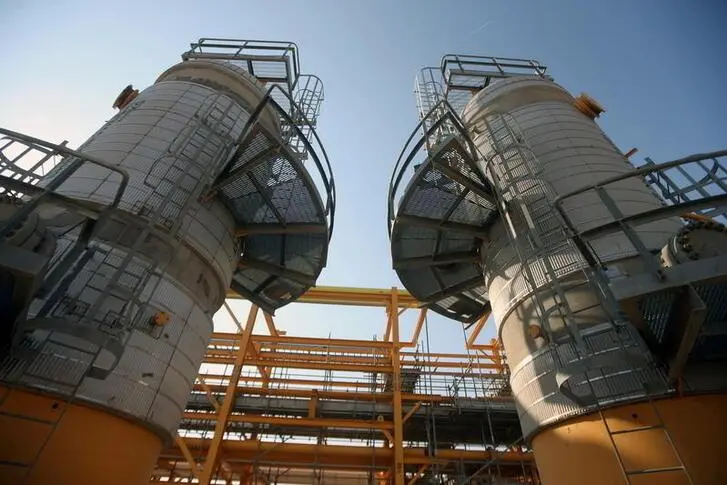PHOTO
MELBOURNE: Oil prices climbed on Tuesday, extending a rebound from last week's plunge on growing expectations major producers would pause plans to add crude supply in January amid uncertainty over the severity of the Omicron coronavirus variant.
U.S. West Texas Intermediate (WTI) crude futures jumped 99 cents, or 1.4%, to $70.94 a barrel at 0105 GMT, adding to a 2.6% rise on Monday.
Brent crude futures climbed 82 cents, or 1.1%, to $74.26 a barrel, after gaining 1% on Monday.
Oil plunged around 12% on Friday along with other markets on fears the heavily mutated Omicron would spark fresh lockdowns and dent global growth.
The World Health Organization said on Monday Omicron posed a very high risk of infection surges, and several countries stepped up travel curbs. It is still unclear how severe the new variant is and whether it can resist existing vaccines.
With the demand outlook under a cloud, expectations are growing that the Organization of the Petroleum Exporting countries, Russia and their allies, together called OPEC+, due to meet on Dec. 2 will put on hold plans to add 400,000 barrels per day (bpd) of supply in January.
"We think the group will lean towards pausing output hikes in light of the Omicron variant and the oil stockpile release by major oil consumers," Commonwealth Bank commodities analyst Vivek Dhar said in a note.
Pressure was already growing within OPEC+ to reconsider its supply plan after last week's release of emergency crude reserves by the United States and other major oil-consuming nations to address soaring prices.
"Following the global strategic reserve releases and the announcement of dozens of countries restricting travel to and from South Africa and neighbouring nations, OPEC and its allies can easily justify an output halt or even a slight cut in production," OANDA analyst Edward Moya said in a note.
Also weighing on the market is the prospect of a resumption of oil exports from Iran, following upbeat comments from diplomats as talks resumed on Monday between world powers and Iran on reviving a nuclear pact.
(Reporting by Sonali Paul. Editing by Gerry Doyle) ((Sonali.Paul@thomsonreuters.com; +61 407 119 523))





















